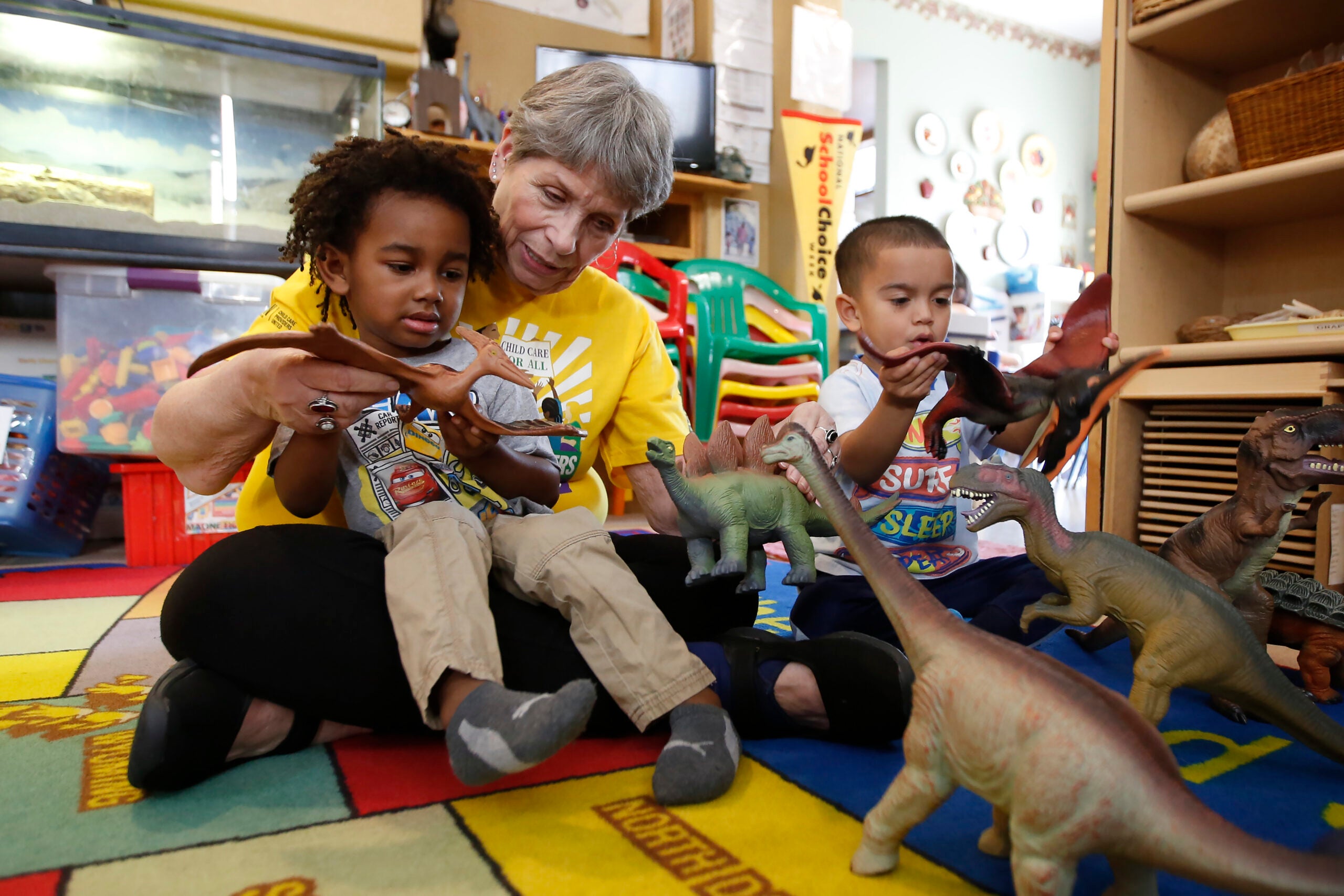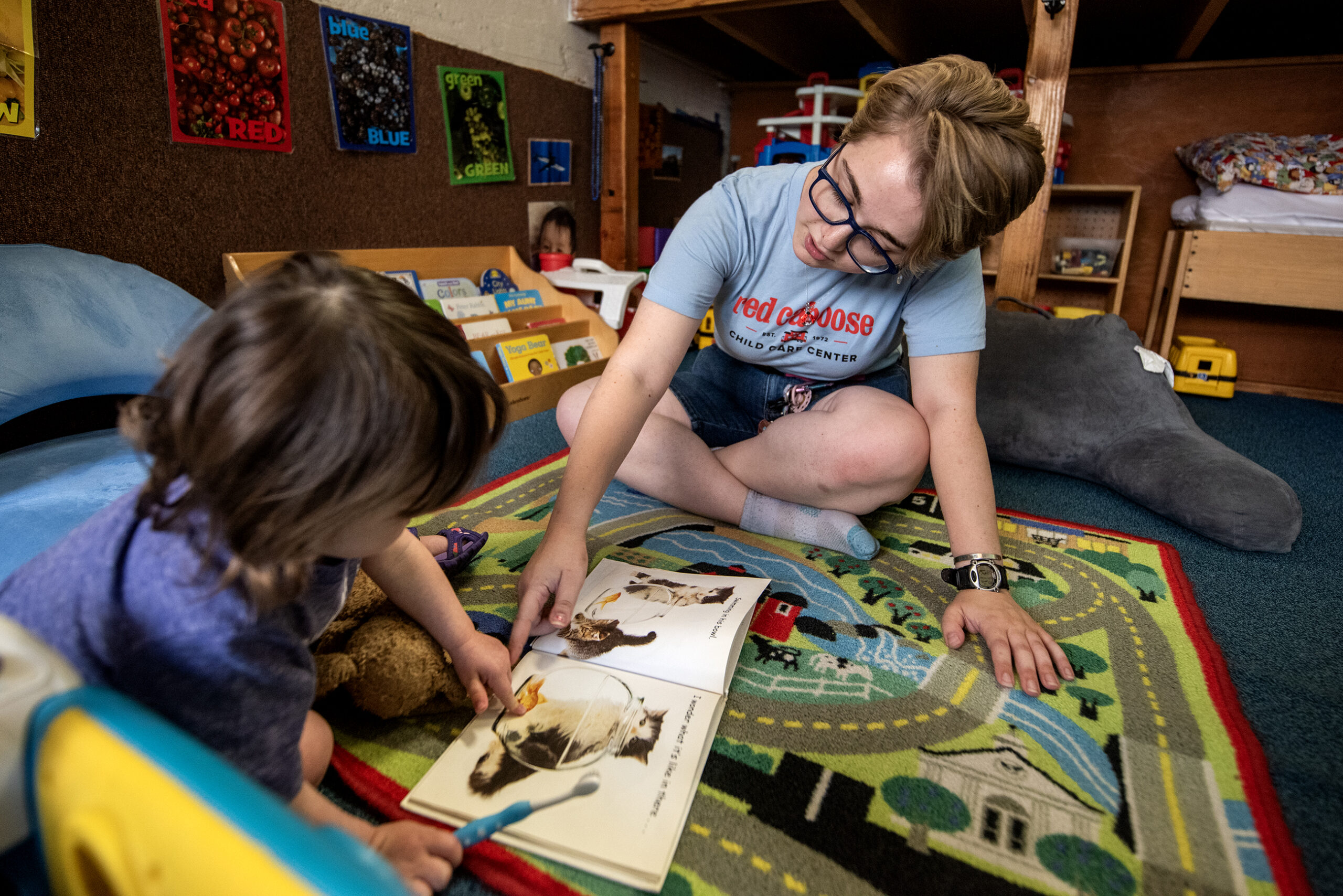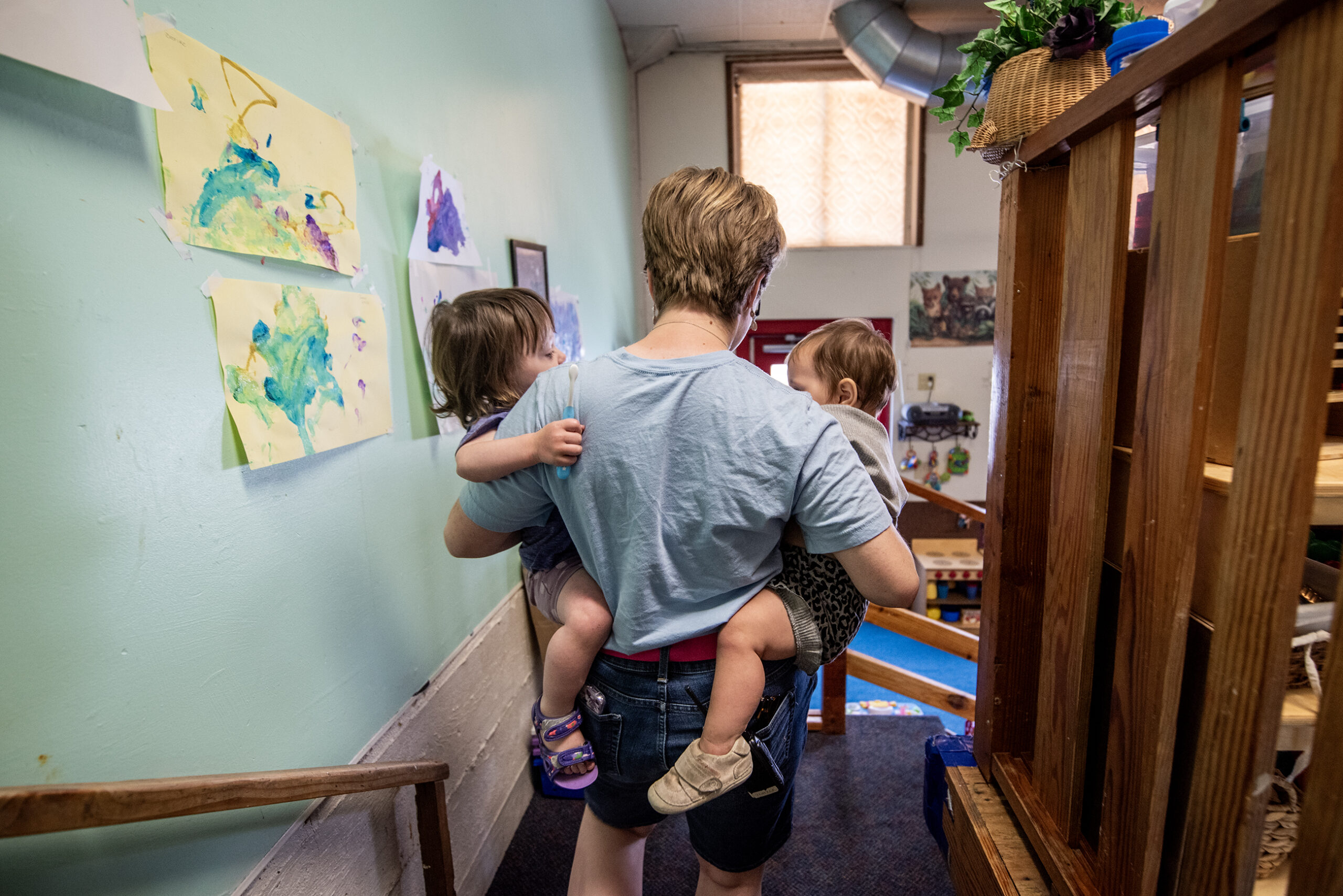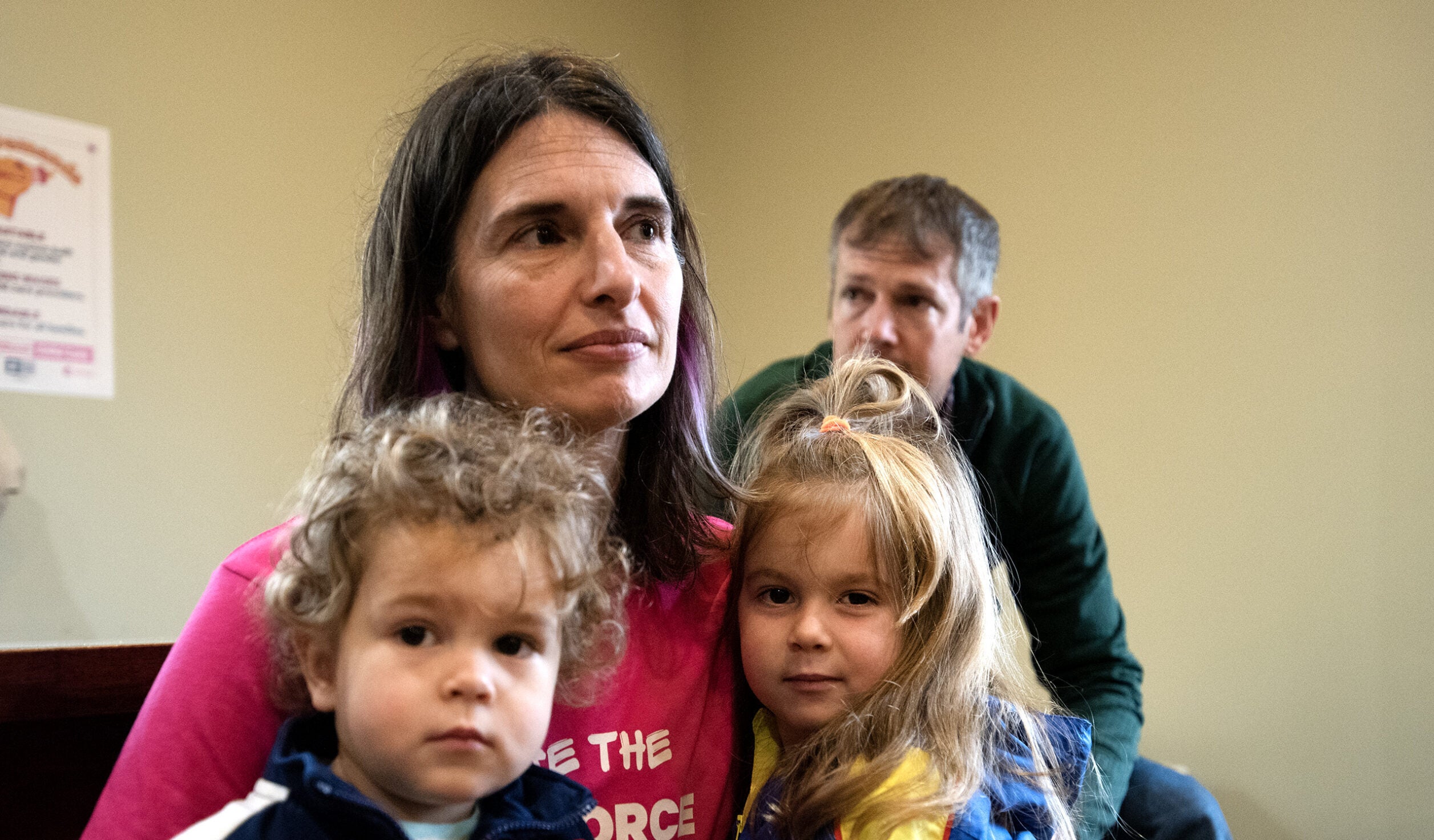Milwaukee has roughly 47,000 children that are under the age of 6, and half of these children don’t have access to quality early childhood education, according to a report by the Greater Milwaukee Foundation.
Parents are struggling to place their children in quality programs because of a lack of income, quality providers and the hours providers are open and the ages they serve.
The report, called A Seat at the Table, is an interactive study that illustrates the disparities in access to high-quality education for young children.
Stay informed on the latest news
Sign up for WPR’s email newsletter.
Jeannie Fenceroy is the senior program manager of education and scholarships for the Greater Milwaukee Foundation. She said the foundation understands the first three years of a child’s life are critically important and wanted to work toward bridging the gap that causes disparities.
“It is a time when children learn to develop through their five senses, through play and through exploring,” Fenceroy said. “But we also knew there needed to be an adult who can help them build on their own learning.”
Eighty percent of the brain is developed by age 3.
According to the study, there are child care spots available for 37,000 children in Milwaukee County, leaving 10,000 without any programs. More than 14,000 children under age 3 lack access to programs. It also found that 27,000 out of 47,000 lack access to three-star child care providers. Providers must meet different requirements involving staffing, environment, wellness and curriculum to meet a specific rating.
The study found that Milwaukee’s north and south side are the areas that are largely impacted, but for different reasons. Both areas have a shortage in quality providers, less than 50 percent of child care providers receive a rating higher than four stars.
Both areas also don’t have many providers that serve ages under 3, which require more licensing requirements such as fewer children in a classroom and lower teacher-to-student ratios. There are also additional costs for child care providers to serve infants and toddlers.
Milwaukee’s south side is impacted largely because of hours of operations. Only 30 percent of child care providers offer services before 7 a.m. and after 7 p.m. Without hours to fit their schedules, parents may have to find another job or have a relative watch their children. According to the study, 1,400 children on the south side do not have access to nontraditional hours.
The study also shows black families residing in central Milwaukee spend up to 31 percent of their income on early childhood education. Federal guidelines suggest families spend no more than 7 percent of their income on child care providers. The study found that on average, early child care in Milwaukee can cost more than $1,000 a month.
Jeanette Paulson is the director of workforce initiatives with the Wisconsin Early Childhood Association (WECA), an organization committed to strengthening the abilities of child care providers through professional development, communications, research and advocacy.
“What we know is that what’s best for children is to have a provider who is able to stay and provide regular routine care,” Paulson said.
WECA has numerous programs across the state, including Milwaukee, that help providers stay in the field by proving counseling and stipends.
“These are really critical times,” Paulson said. “We want to make sure children have access to the best and highest quality (child care programs) to support their learning.”
Milwaukee isn’t the only city that suffers from a lack of quality child care. Nationally, the turnover rate in the field can be 20 to 40 percent, Paulson said. The turnover rate in Wisconsin is 32 percent, likely due to low wages.
According to the Greater Milwaukee Foundation, a $1 investment into quality early childhood education programs could likely see a $9 return from potential future earnings from impacted children.
“We need to come around (to) this issue as a community,” Fenceroy said. “If you can’t send your child to a place that you can afford and trust, guess what, you’re going to stay home.”
Wisconsin Public Radio, © Copyright 2025, Board of Regents of the University of Wisconsin System and Wisconsin Educational Communications Board.





